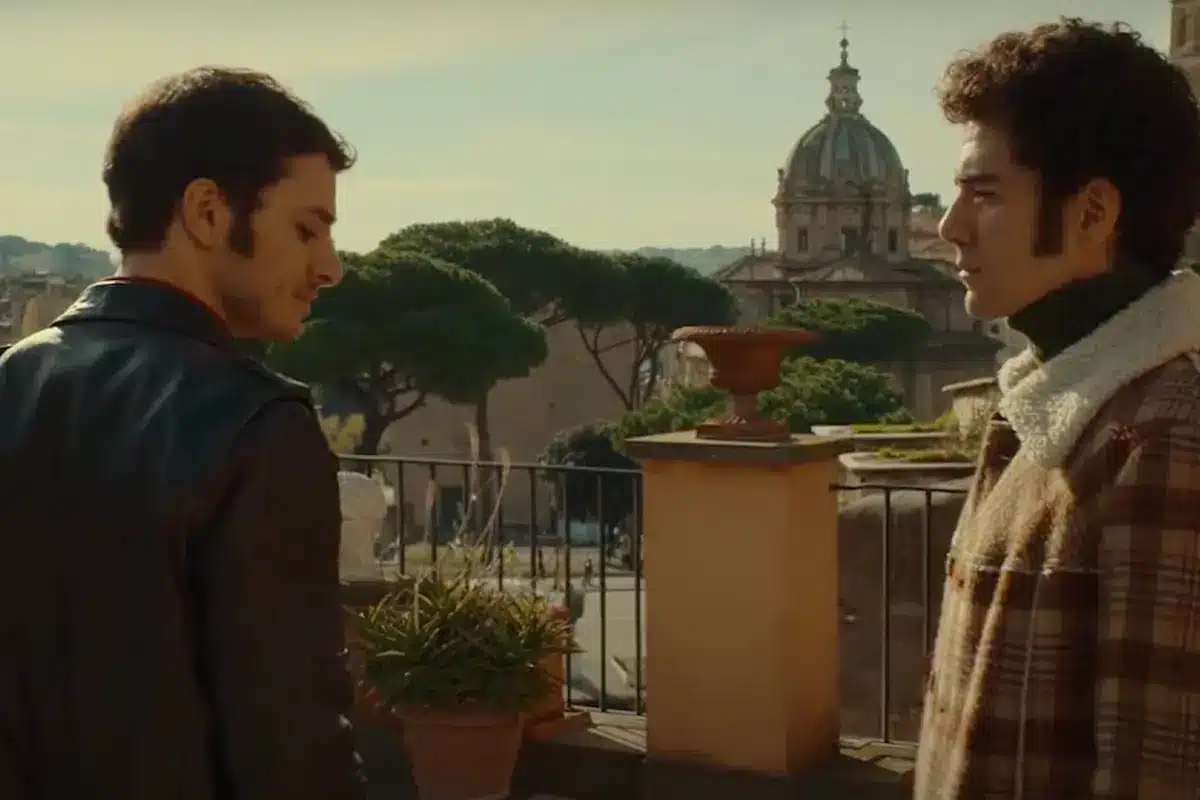




Dir: Ferzan Ozpetek | Cast: Luisa Ranieri, Greta Scarano, Damiano Gavino, Aurora Giovinazzo, Andrea Di Luigi, Alvise Rigo | Italy, drama, 113’
Nuovo Olimpo is the 9th feature film during three decades for the Italian/Turkish director Ferzan Ozpetek. The film has been quietly slipped into the Netflix schedules and the surprise is that it brings the director full circle to his striking debut Haman. Largely set in a Turkish steam house which becomes a place for two men to secretly meet, this 1999 film is remembered for its gentle and profound feeling for humanity and the coded mysterious ways we navigate questions relating to family, relationships and gender.
There is a strong hint the true story that inspired Nuovo Olimpo provides Ozpetek with what may be his most personal film since Haman. Many of the preceding films including Fati Ignoranti! (2022), Cuore Sacro (2005) and Mine Viganti (2010) are generally romantic generic family dramas possibly aimed more at the local rather than world film market. Nuovo Olimpo may seem slight and unassuming. Looked at more closely, it reveals a confident director with an understanding of how astute and careful narrative, sensitive performances and skilful layered editing can result in a nuanced film more effortlessly complex than first appears.
The story itself is of an eternal nature in which two young bisexual men meet but are unable to build the attraction into a complete gay relationship. Enea (Damiano Gavino) is a film crew set worker and Pietro (Andrea di Luigi) a trainee medical student who first lock eyes on each other in an opening sequence that is a homage to Gena Rowlands and John Cassavetes’ Gloria. This is one of Ozpetek’s many love letters to the cinema with Nuovo Olimpo both the title of the film and the name of the cinema in the film that will be a space which becomes as safe to meet for the men much as the steam room does in Hamam.
The film has four acts, set in 1988,1998 and 2015 and begins in 1978 with a chance follow-up encounter between two men in a classic arthouse repertory cinema that will be familiar to those who remember The Biograph Cinema in London’s Victoria. Ozpetek captures details of cruising in a cinema to make this comparable to sequences in Schlesinger’s Midnight Cowboy, Clements This Angry Age and Tsai Ming-liang’s Goodbye Dragon Inn. The cinema is presided over by a matronly box office fag hag woman with an astute knowledge of her male customers and Ozpetek includes clips on the cinema screen from Renato Castellani’s Nella Citta l’Inferno (1959) aka And We The Wild Women, with Magnani and Masina exuding fiery Italian passions while men in the audience cruise in auditoriums and toilets.
Ozpetek adds into the romantic tragic narrative hints of the cinema’s own ‘amour fou’ with subtle references to McCarey’s An Affair to Remember, Almodóvar’s Talk to Her and Sirk’s Magnificent Obsession. The film may also contain a fleeting reference to Ophul’s Letter from an Unknown Women with a street map containing the words: “so time and space won’t get in the way” which becomes a form of letter that returns to the men over the decades. One of the film’s most moving sequences involves the wife of one of the men who provides her husband with the key to follow his heart, much as Ang Lee centres on the women in Brokeback Mountain as the real creators of the destiny of men unable to realise a love unspoken in.
Ozpetek is aided by the delicate movement of beautiful wide screen camerawork by Gian Filippo Corticelli, both lush and restrained music, uniformly good acting including relaxed and very natural explicit nudity and sex scenes, while the cast undergo ageing over three decades.
Ultimately it is with his choice of theme that Ozpetek makes Nuovo Olimpo most satisfying. He explores how love can both envelope as well as separate, create doubt and distance between what is real as well as imagined. As if impossible loves live on longer, the film contains an exquisite sequence in which the two men are separated in space but united in time as they watch Nella Citta l’Inferno on Television screens as a reminder of time lost, but not forgotten.
The final sequence is masterly and may well be one of the most beautiful in recent cinema. As the two men face each other in an empty street and make a decision that changes both lives, Ozpetek contemplates that if stinginess is all that heaven allows, there is also the choice to live on in the dream of an impossible love. The sequence concludes with an unbroken camera movement combining reality and a moment in time that was never to be. The film anticipates that there may be much more to come from this remarkable filmmaker. @PeterHerbert
Peter Herbert is Curator Manager at The Arts Project, 215 Weedington Road! London NW5 4PQ